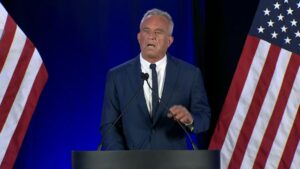Web of disinformation: India’s Hindutva digital landscape supports Israel
Fact-checker Pratik Sinha dubs India the ‘disinformation capital of the world,’, the title unfortunately, seems rooted in the rise of right-wing nationalism
Muslim Network TV Desk
The unfolding Israel-Palestine conflict has cast light on the alliance between India’s ruling Hindutva extremist ideology and Israeli Zionism. Both seemingly revel in the challenges faced by Muslims worldwide.
BOOM, an Indian fact-checking service, recently unveiled a vast disinformation campaign, with a significant Indian component, promoting skewed narratives about Palestine in favor of Israel.
A deceptive video, allegedly showcasing Hamas’ involvement in heinous activities, went viral, amassing massive traction online. Notably, a large share of accounts sharing this video had Indian origins, suggesting a structured spread of misinformation.
Such campaigns are not harmless; they exploit the term “open-source intelligence” to add authenticity, manipulating public sentiment.
One such example is “Angry Saffron,” an OSINT channel based in India. The spread of such misleading content, either due to poor information or intentional disinformation, is deeply concerning.
Another misleading video accusing Hamas of kidnapping a Jewish baby was predominantly disseminated by Indian online profiles, with its reach exceeding a million viewers.
Amid these falsehoods, there is an evident undertone of Islamophobia. Several Indian accounts spreading these videos also engage in anti-Muslim comments. A glaring example is a user named MrSinha_, who paired misinformation with the hashtag #IslamIsTheProblem.
Also concerning is the blatant content against Palestine and Muslims by accounts, some impersonating retired Indian military personnel, demanding Palestine’s destruction. Such online behavior mirrors India’s broader issue of Islamophobia, which has grown under Prime Minister Narendra Modi’s Bharatiya Janata Party (BJP).
These are fragments of a larger disinformation agenda, portraying Palestinians negatively, part of a wider campaign influencing social and political beliefs with untruths.
The situation intensifies as notable personalities like fact-checker Pratik Sinha dub India the “disinformation capital of the world.” This title, unfortunately, seems rooted in the rise of right-wing nationalism.
Investigations suggest a connection between these false narratives and the India’s ruling Bhartiya Janata Party (BJP)’s IT Cell, known for its digital proficiency.
-Hindutva and Zionism, brothers in arms
India’s relationship with Israel is not newfound. Scholars point to the ideological intersections of Hindutva and Zionism, each with historical ambitions for statehood based on religious and cultural identity.
Prime Minister Narendra Modi’s evident camaraderie with Benjamin Netanyahu signifies strengthened diplomatic ties. This bond, however, generates global debate, especially considering India’s prior support for Palestine.
Although India officially supports Palestine, Modi’s evident inclination towards Israel seems to empower right-wing thinkers, leading to a shift in public opinion. The concerning result is the digital sphere’s flooding with Hindu nationalist rhetoric, often skewed with anti-Muslim views.
This misinformation dilemma correlates with historical friction points, like the Ayodhya or Babri Mosque dispute, with digital figures drawing parallels between religious sites, fueling divisive sentiments. The mosque was demolished in 1992 and in 2019 its site was handed over to Hindus to build a grand Ram Temple. Like Jewish argument on Al-Aqsa, they carried the argument, that the mosque had been built on a demolished temple. That argument was repudiated by the court, but despite that handed over the site to Hindus.
Research, such as that conducted by the Islamic Council of Victoria in Australia, indicates that a substantial volume of Islamophobic sentiments on Twitter originates from India. It is particularly distressing to note the involvement of organized social media entities in propagating these sentiments, as detailed in Swati Chaturvedi’s book, “I Am a Troll.”
These organizations, reportedly linked to the BJP’s IT Cell, coordinate online trolling characterized by misogyny, hatred, and Islamophobia. Adding layers to this scenario is the Uttar Pradesh government’s stance against pro-Palestine expressions, following a demonstration at Aligarh Muslim University.
Azad Essa, a New York-based journalist, states that the core of the Hindutva-Zionism alliance is Islamophobia. Both ideologies emphasize race, territory, and nativism. Essa notes that both Zionism and Hindutva invest heavily in education and culture. Both are also known to adjust or erase Palestinian, Indian Muslim, or Kashmiri identities.
According to Essa, as the struggle for independence from the British started, the Hindu nationalist movement looked at Muslims as their main [internal] enemy that needed to be disciplined. The Rashtriya Swayamsevak Sangh (RSS) organization was established in 1925 and became the central hub for Hindu nationalist supremacist ideology [with the aim of] creating the Hindu state.
The RSS gave birth to a youth wing and a religious wing, and created charitable organizations, an educational syllabus, and would later build a political wing — the BJP. The author said both Zionism and Hindutva peddle extensively in pinkwashing.
Both also focus on education and culture, like traditional fascist movements. Both spend a lot of time trying to erase Palestinian, or Indian Muslim or Kashmiri, identity, by adjusting textbooks or appropriating cuisine.
Indian and Israeli leaders both tend to code switch when explaining their goals to different audiences: to international audiences, they speak of terrorism, self-defense, and peace; domestically, meanwhile, they talk about expanding borders, while allowing their surrogates to spout hate speech about Palestinians or Indian Muslims or Kashmiris.
It is unsurprising, then, that the TV show Fauda was also a big hit in India. An Indian version set in Indian occupied Kashmir — instead of the occupied territories — is set for release in the coming months. Hindus may not have faced the same traumas that Jews have over the centuries, but they are trying to manufacture that trauma using the Jewish experience.
Today, the Hindu nationalist lobby in the United States exaggerates the criticism it is facing and reframes it as attacks on Hinduism as such. They call it “Hinduphobia.” Hindutva, Zionism, white supremacism, the right wing in Hungary, the right wing in Brazil — these are all connected.
People need to see them for what they are: different shades of the same authoritarianism that is expanding across the world and trying to dismantle democracy, using the same means and different myths to capture people’s imaginations.
In India, the rise in billionaires and heightened inequality is evident. Therefore, tracing the financial beneficiaries of these movements is crucial to comprehend the distortion of history and religion for controlling and amplifying the elites’ influence.












